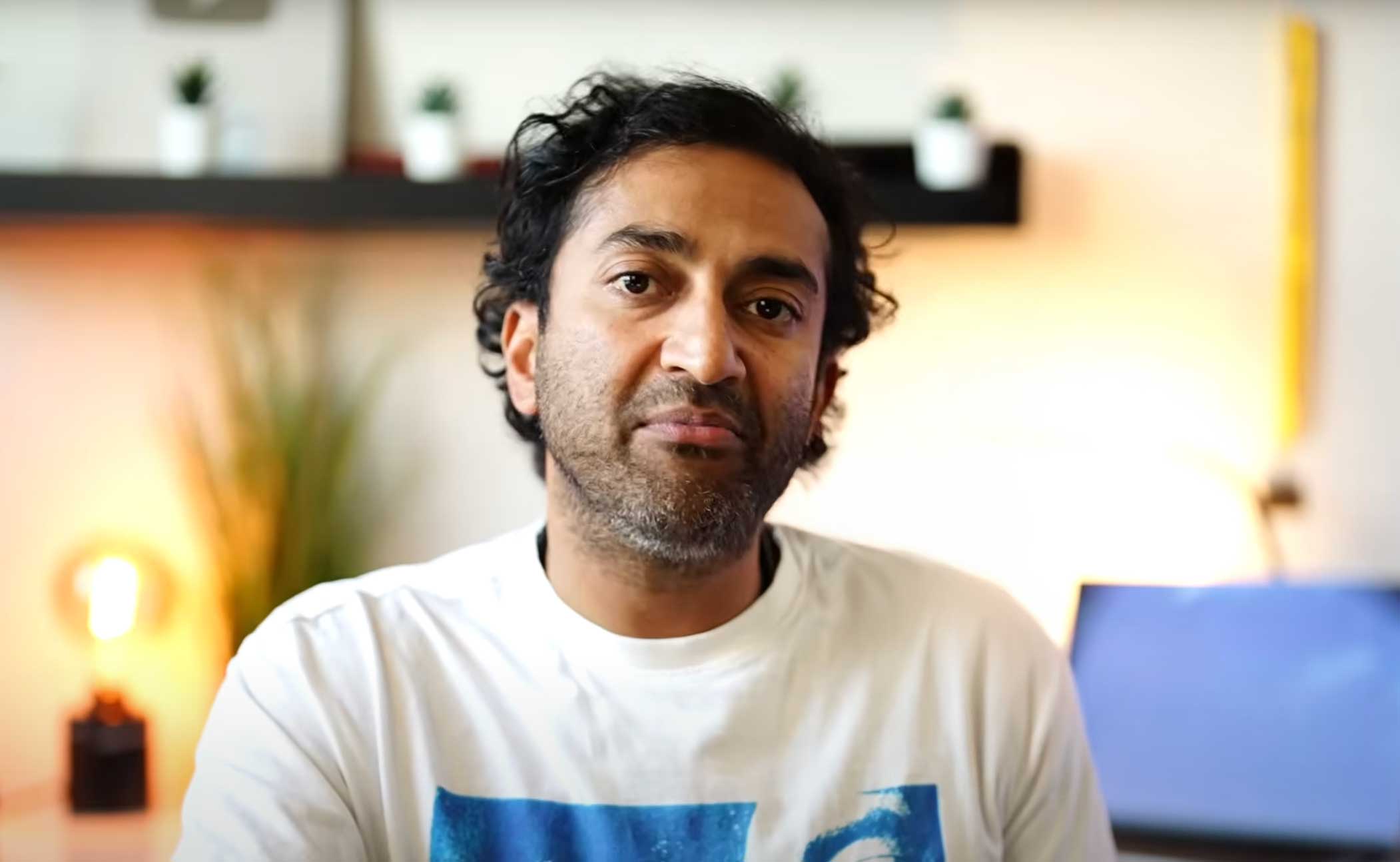Transcript: Dr. Anthony Fauci on "Face the Nation," August 1, 2021
The following is a transcript of an interview with Dr. Anthony Fauci that aired on Sunday, August 1, 2021, on "Face the Nation."
JOHN DICKERSON: Mark Strassmann, thank you. We go now to President Biden's chief medical advisor, Dr. Anthony Fauci. Good morning, Dr. Fauci.
CHIEF MEDICAL ADVISER TO PRESIDENT BIDEN DR. ANTHONY FAUCI: Good morning, JOHN.
JOHN DICKERSON: I'd like to start with the new thinking on COVID-19 that was part of the CDC's decision to change its mask guidance. We've been talking about the Delta variant for a while. But what is new in your understanding about the Delta variant this week?
DR. FAUCI: Well, a confirmation of how easily it spreads from person to person, but also we found that individuals who get breakthrough infections, namely people who are vaccinated, who might get infected, almost invariably they get either minimal symptoms or no symptoms at all. But since no vaccine is 100% effective, you're going to see breakthrough infections. But what we've learned that's new, JOHN, in answer to your question is that when you look at the level of virus in the nasopharynx of people who are vaccinated, who get breakthrough infections, it's really quite high and equivalent to the level of virus in the nasopharynx of unvaccinated people who get infected. That's very different from the Alpha variant. The Alpha variant the level of virus in a vaccinated person was extremely low compared in the- in the vaccinated people compared to the unvaccinated people. Not so with Delta. So we know now that vaccinated people who get breakthrough infections can spread the virus to other people.
JOHN DICKERSON: Sticking on- on that point, we've always known that it was not 100% effective when you're vaccinated. So what- among the breakthrough cases that we always knew would happen, in every breakthrough instance is it true that the ability to spread is high or is it a smaller subset of the breakthrough cases in which this discovery was made about the ability to spread?
DR. FAUCI: Well, the phenomenon of the ability to spread is clear. We're seeing that very, very clearly in a number of situations. When you look at the data that we've gotten from a single study so far, and other studies are coming out, you have a variability. But the mean, the sort of average or mean level of virus in the nasopharynx is really quite similar, almost identical on an average. So you would think, obviously, when you have biological variability, you're going to have some people high, some people low, some people in the middle. But the median or mean is going to be right there, which is very similar to the unvaccinated individual, which is troublesome, which tells you the potential for transmission is there.
JOHN DICKERSON: And that's why the mask guidance for those who have already been vaccinated, because there are these cases in which it's possible to spread.
DR. FAUCI: Right. I mean, the situation is that if you get breakthrough infections in- in individuals who are vaccinated and they don't spread at all to anybody else, then you would not worry about if they went home to a vulnerable person in the household, children or an elderly person, they wouldn't be any issue. But since we know now that, A, they can transmit when they get breakthrough infections, even though they have minimal symptoms or no symptoms, we know they can do it. We know the mechanistic reason for it is that the level of virus is high. So you want to make sure they don't get infected. And that's the reason why. And the fundamental basis for the CDC modifying their guidelines and saying, now, if you're in an area of a high or substantial level of virus, namely a red and orange zone, you- when you are in an indoor public setting, you need to wear a mask. That's the fundamental reason for that change.
JOHN DICKERSON: And so people who say, I don't want to wear a mask, it's my personal decision, that's the way they see it. As you see it, what decision are they making by not wearing a mask?
DR. FAUCI: Well, one of the issues that- that just looms large, JOHN, when you're dealing with this, is that you understand people's feeling that they have the individual right to make their own decision. And I respect that for sure. But the issue is, if you're going to be part of the transmission chain to someone else, then your decision is impacting someone else. It's not only impacting you. And you've got to think about it, that you are a member of society and you have a responsibility.
JOHN DICKERSON: Let me ask you about context here. In the CDC document, there was an expression, someone wrote, "the war has changed" based on these new findings. But isn't the war essentially the same as it was, which is there are pockets of the country where there are not people getting vaccinated as much as they should be. And that's the big issue. And that- that hasn't changed this week at all, despite what we've just been talking about for the last four minutes.
DR. FAUCI: You're absolutely correct. We have 100 million people in this country, JOHN, who are eligible to be vaccinated, who are not vaccinated. We've really got to get those people to change their minds, make it easy for them, convince them, do something to get them to be vaccinated because they are the ones that are propagating this outbreak. So you're absolutely correct. That hasn't changed. What has magnified the problem, JOHN, is that we're now dealing with a virus that has an extraordinary capability of spreading from person to person. So when you superimpose one on the other, you have a very difficult situation, a pool of unvaccinated people and a virus that spreads very efficiently.
JOHN DICKERSON: Looking at the Massachusetts- the Provincetown study that was a part of this mask guidance, we've talked about the ability to transmit among those who are already vaccinated. But it looks like the story of that study could also be the vaccines work.
DR. FAUCI: Oh, absolutely. I mean, it's understandable how there could be kind of a dual or a mixed message from that study, but the predominant message is that if you are vaccinated and you get a breakthrough infec- first of all, if you're vaccinated, you're much, much more protected against getting infected than an unvaccinated who is completely vulnerable. So you have a degree of protection against infection. But the critical issue, JOHN, is that if you do get infected, the likelihood of your getting a severe outcome of the infection is very low. It is much more likely that you will be either without symptoms or minimally symptomatic. So the vaccine is doing what you want it to do. It's protecting people from getting sick.
JOHN DICKERSON: There seems to be some evidence that the message is getting through. The total number of new-vaccinated reported in the past seven days is the highest since the week of July Fourth. In low vaccination areas, the vaccination uptake is high. A, what do you think is a result- why is that happening? And then, B, when do we think we'll see the dividends from those vaccinations?
DR. FAUCI: Well, I think that's happening for two reasons. I think that, first of all, we're trying as hard as we can to make it as easy as possible for people to get vaccinated using trusted messengers. But I think when people realize and look around them and see that in the area where they live, the virus and the infection is escalating considerably compared to areas that have a high degree of vaccination. So it's sort of common sense. But I'm also gratified by seeing that even people who in the beginning were reluctant to promote vaccination are now doing it. I mean, people like Republicans like- like Stephen Scalise or even Governor DeSantis is talking about getting people vaccinated. Asa Hutchinson out there beating the bushes, getting people to get vaccinated. I think that's what's happening now.
JOHN DICKERSON: All right, Dr. Fauci, thank you so much for being with us and helping us understand all this. We appreciate it. We'll be back in one minute. Stay with us.



